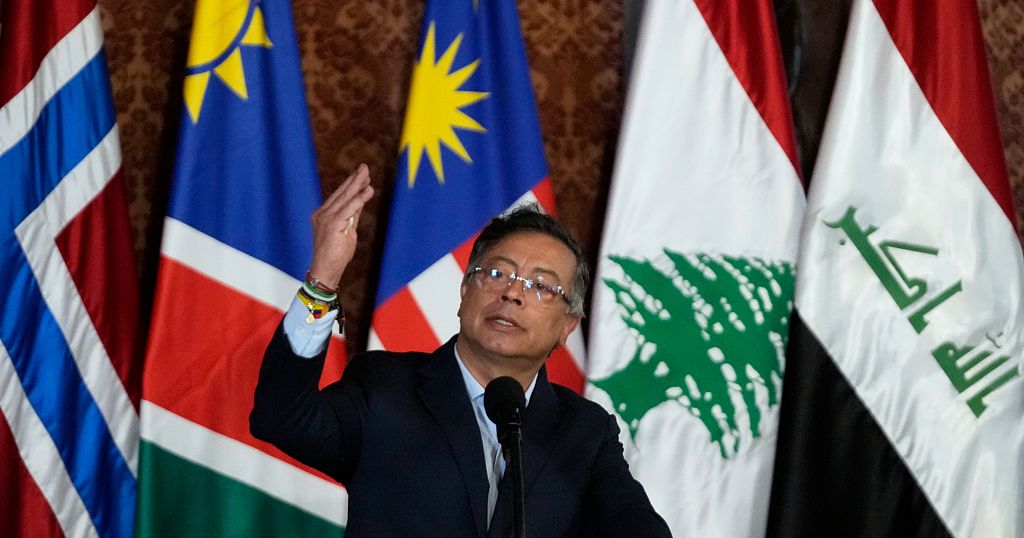A coalition of 12 nations has pledged to curb military and economic support for Israel in response to its ongoing military operations in Palestinian territories, marking a significant coordinated effort to increase international pressure. During a ministerial conference in Bogotá convened by the Hague Group, countries including Colombia, South Africa, Bolivia, Cuba, and Malaysia committed to halting arms transfers and restricting shipping activities they deem linked to Israel’s campaign in Gaza. The measures, outlined in a joint statement released Wednesday, aim to align with each nation’s domestic laws while targeting industries that “facilitate genocide, war crimes, and violations of international law,” according to the document.
Central to the agreement is a ban on exporting weapons, ammunition, and military equipment to Israel, with signatories also agreeing to block ships suspected of transporting such materials from docking or refueling in their ports. Riyad Mansour, the Palestinian ambassador to the United Nations, described the move as a “turning point” and predicted a growing global push to “force Israel to stop the genocide,” citing support from civil society and businesses. The announcement follows months of escalating criticism from participating nations, particularly Colombia, which severed diplomatic ties with Israel earlier this year under President Gustavo Petro.
Petro, a vocal opponent of the Gaza offensive since its outset in October 2023, accused European and U.S. governments of enabling Israel’s actions, declaring during the conference that Colombia would no longer engage with leaders who “betray their own people” by supplying military resources. He emphasized that Colombian coal exports would not be used to “kill children” in Gaza, though he acknowledged internal resistance to fully enforcing the ban. Petro’s administration had previously suspended arms purchases from Israel and likened its military tactics in Gaza to Nazi-era atrocities, a comparison that has drawn fierce backlash from Israeli officials.
While the coalition’s measures signal growing dissent against Israel’s campaign, their practical impact hinges on domestic implementation. Experts note that participants vary widely in their existing trade ties to Israel, with enforcement likely to face legal and political hurdles in some nations. The move nonetheless reflects intensified scrutiny of arms supply chains and international complicity in conflicts, echoing calls by humanitarian groups for stricter adherence to global legal frameworks. As debates over accountability deepen, the coalition’s next steps may test the balance between diplomatic pressure and tangible policy shifts in one of the world’s most polarizing conflicts.
